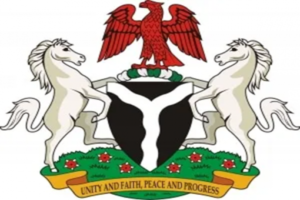Impeachment is one of the most serious constitutional measures that can be taken against an elected government official in Nigeria. It is the process by which a sitting governor, president, vice president, or deputy governor can be lawfully removed from office before the end of their tenure due to proven gross misconduct. The impeachment of a state governor is not a simple political maneuver but a legally guided process outlined in Section 188 of the 1999 Constitution of Nigeria. Understanding the complexities of this process is essential, as it has significant implications for governance, accountability, and democratic stability.
The process begins when a governor is accused of gross misconduct, a term that covers a wide range of offenses, including financial mismanagement, abuse of power, corruption, and constitutional violations. The first step in impeachment is for at least one-third of the members of the State House of Assembly to present a written allegation against the governor. This document, signed by the required lawmakers, must then be submitted to the Speaker of the State House of Assembly, who is mandated to act upon it within a strict timeline.
Once the Speaker receives the petition, the governor must be formally served with a copy of the allegations within seven days. This notification is crucial, as it allows the governor the right to respond and present a defense against the charges. The governor’s reply must then be distributed to all members of the House of Assembly, ensuring that lawmakers have access to both the allegations and the governor’s rebuttal.
The next phase of the process involves a motion within the House of Assembly to determine whether the allegations warrant an investigation. This motion, which must be passed within 14 days of the initial presentation, requires the approval of at least two-thirds of the members of the House. If the required number of lawmakers vote in favor of further investigation, the process moves forward. However, if the motion fails to secure the needed votes, the impeachment proceedings are immediately terminated.
If the motion is successful, the Speaker of the House is required to, within seven days, request the Chief Judge of the state to appoint a panel to investigate the allegations. This investigative panel, which plays a critical role in determining the governor’s fate, must be composed of individuals who are non-partisan and have no political affiliations. The independence and neutrality of the panel are crucial to ensuring a fair and just process.
Once the panel is formed, it has a maximum of three months to conduct its investigation and submit its findings to the State House of Assembly. During this period, the governor has the right to defend himself either personally or through a legal representative. The panel’s job is to examine the evidence, hear testimonies, and determine whether the allegations of gross misconduct can be substantiated.
If the panel concludes that the allegations cannot be proven, the impeachment proceedings are terminated immediately, and the governor continues in office without further consequences. However, if the panel finds the governor guilty of misconduct, its report is forwarded to the House of Assembly for deliberation. At this stage, a final resolution is moved to formally adopt the findings.
For the impeachment to be executed, at least two-thirds of the entire members of the House of Assembly must vote in favor of the resolution. If the motion secures the necessary majority, the governor is officially removed from office. Following the impeachment, the deputy governor is immediately sworn in as the new governor, ensuring a seamless transition of leadership in the state.
Impeachment is a powerful constitutional tool designed to uphold accountability and prevent abuse of power by elected officials. However, it is also a process that must be handled with the highest level of integrity and legal scrutiny to prevent its misuse for political vendettas. In Nigeria’s political history, several impeachment attempts have been met with controversy, legal battles, and political instability, raising concerns over whether the process is always executed in good faith.
For a democracy to thrive, impeachment must be used strictly within the boundaries of the law and not as a weapon for political rivalry. Nigerians must remain vigilant and ensure that their elected representatives uphold the constitution while demanding transparency and justice in every impeachment process.
Stay informed with the latest news from Nigeria and beyond. Join us on WhatsApp or Telegram for real-time updates. Have a report or article? Send it to report@trendingnaijanews.com. Follow us on X (Twitter), Instagram, LinkedIn, YouTube, TikTok, and Facebook for more updates.


